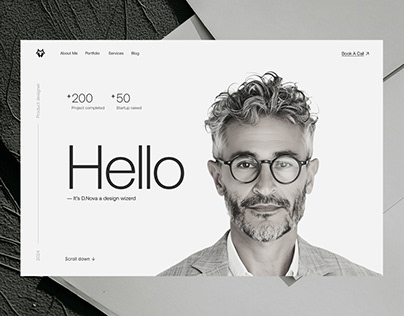Top Tips for Developing an Impactful Web Site Layout That Converts
To accomplish this, one have to think about a range of aspects, consisting of recognizing the target audience, focusing on individual experience, and optimizing for mobile systems. The calculated use of compelling call-to-actions and a distinct aesthetic pecking order plays an important role in guiding customers via their journey.

Understand Your Target Audience
Understanding your target market is essential to efficient site layout, as it lays the groundwork for developing an appealing user experience. Recognizing who your users are, including their demographics, choices, and habits, enables developers to tailor the internet site's material, layout, and capability to satisfy specific requirements.
Conducting thorough marketing research is essential in this procedure. Surveys, meetings, and analytics can supply valuable understandings into individual expectations and discomfort factors. By compiling this information, designers can produce user characters that represent various segments of the audience, guaranteeing that layout decisions are educated and appropriate.
In addition, comprehending the target market helps in picking appropriate layout elements such as color pattern, typography, and images that reverberate with individuals. An internet site that speaks straight to its audience cultivates a feeling of connection and count on, urging longer visits and greater conversion prices.
Ultimately, a user-centered approach to web site design not only enhances user satisfaction however likewise sustains organization objectives by driving engagement and loyalty. By focusing on the demands and choices of the target market, a site can efficiently offer its function and attain wanted end results.
Prioritize Customer Experience
To boost the total effectiveness of a website, prioritizing individual experience (UX) is essential (Website Design). A well-designed UX ensures that visitors can navigate the site easily, locate details promptly, and involve with material meaningfully. This brings about raised customer contentment and greater conversion prices
Begin by carrying out user-friendly navigation. Menus must be rationally structured, permitting individuals to find crucial areas of the site with very little effort. Consistency in layout components, such as color pattern and typefaces, promotes experience, which is important for preserving user engagement.
Additionally, consider the packing speed of your website. A hold-up of just a few secs can result in significant drop-offs, as customers are much less likely to wait for a slow-loading web page. Enhancing pictures and optimizing code can enhance efficiency and retain site visitors.
By prioritizing user experience, you not only develop a more delightful atmosphere for site visitors however also strengthen your brand name's trustworthiness. Inevitably, an emphasis on UX is a financial investment in the long-lasting success of your internet site.
Optimize for Mobile Gadgets
Enhancing for mobile phones is critical in today's digital landscape, where an enhancing number of users gain access to web sites with mobile phones and tablet computers. A mobile-friendly design not only improves individual experience yet likewise plays a substantial role in enhancing internet search engine positions. To attain this, it is necessary to adopt a responsive layout that instantly readjusts to numerous display sizes and positionings.

Packing speed is another essential variable; mobile individuals are usually less patient and expect rapid access to info. Optimize photos and utilize internet browser caching to enhance performance. Test your website on several gadgets and screen resolutions to recognize and rectify any kind of prospective use problems. By focusing on mobile optimization, you make sure that your website continues to be competitive and successfully engages a wider target market.
Use Engaging Call-to-Actions
A website's efficiency often depends upon its ability to direct site visitors toward preferred activities, making compelling call-to-actions (CTAs) vital parts of design. CTAs serve as the essential factors that guide individuals to engage with the website, whether that suggests purchasing, authorizing up for a newsletter, or downloading a source.
To create efficient CTAs, clarity is vital. Use succinct language that clearly communicates the activity you want the individual to take. Expressions such as "Start," "Join Free," or "Shop Now" not just convey seriousness however additionally remove uncertainty. The placement of CTAs is just as essential; they should be strategically placed throughout the page to ensure they are quickly visible, particularly in high-traffic areas.
Additionally, the style of CTAs must stick out without being meddlesome. Utilize contrasting colors and clear font styles to ensure they record focus. Furthermore, think about using directional cues, such as arrowheads or pictures, to direct users towards these switches. By concentrating on these elements, organizations can significantly boost individual engagement, driving conversions and inevitably attaining their site's goals.
Concentrate On Visual Pecking Order
Effective internet site style relies heavily on a well-structured aesthetic power structure that overviews individuals with content flawlessly. By arranging components in my company a way that prioritizes information, developers can improve customer experience and promote decision-making. This includes making use of size, color, comparison, read this post here and spacing tactically to attract attention to one of the most important components of a web page.
Using bigger typefaces for headings and subheadings establishes a clear distinction in between different areas, allowing customers to scan material easily. Additionally, using contrasting colors for switches and calls-to-action can record user interest and motivate communication. Whitespace is another necessary part; it avoids clutter and makes it possible for users to concentrate on crucial messages without disturbances.
Images and graphics ought to match the message while additionally sticking to the established pecking order, strengthening the overall message (Website Design). Consistency in design aspects, such as color plans and typography, more reinforces the aesthetic power structure, making navigating intuitive

Final Thought
In verdict, efficient site layout requires an extensive understanding of the target audience, prioritization of customer experience, and mobile optimization. Eventually, a well-executed website layout serves as an essential element in driving user activities and achieving service objectives.